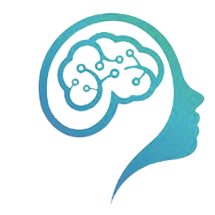Parent's Guide
Do You Ever Wonder "What's Wrong With My Child?"
Do your kids suffer from lack of attention, concentration, antisocial behavior, substance abuse, depression, anxiety, and impaired emotional and cognitive functioning?
Let's get to the source and take a closer look at your child's symptoms and behaviors.
What Parents Should Know About Attention Deficit Disorders With or Without Hyperactivity (ADD/H)
Attention deficit disorder with or without hyperactivity disorder (ADD/H) is one of the most common childhood disorders and can continue through adolescence and adulthood, which has also been commonly ignored. Minimal brain dysfunctions, or abnormal cerebral structures, and/or the brain's chemical imbalance affect people so that they may experience periods of explosive rage that can lead to violent episodes and thus violent crimes. These dysfunctions of the brain are typically diagnosed as attention deficit disorders with or without hyperactivity (ADHD), which is another suspected cause of antisocial behavior, conduct disorder, substance abuse, crime, and delinquency (Pratt, Cullen, Blevins, Daigle, & Unnever, 2002). Furthermore, ADHD is associated with a variety of conditions that are risk factors for offending, including neuropsychological deficits, poor academic and cognitive skills, truancy, psychological problems, and defiance and aggression.
Emotional-Behavioral Disorders
Psychosocial problems and mental health difficulties commonly related to ADD/H in adolescence are generally divided into three broad categories of emotional-behavioral disorder: internalizing, externalizing, and substance abuse (Steinberg, 2011).
Internalizing Disorders
These disorders, such as depression, anxiety, and phobia, involve distress in the emotional and cognitive domains. Self-destructive behaviors often emerge in just as likely to accompany behavioral (externalizing) problems as they are depressions and other internalizing problems (Steinberg, 2011).
Externalizing Disorders
“Acting out” behaviors such as truancy, aggression, and delinquency are directed outside of the self in the form of a wide range of behavioral disorders characterized by an antisocial orientation to others and society. Adolescent delinquency and crime, aggression, and other forms of disorderly conduct fall under the category of externalizing behaviors and are believed to derive from a general propensity toward antisocial behavior.
Substance Disorders
These disorders involve the (nonexperimental) abuse of a substance or a wide range of substances, from prescription drugs (such as stimulants or sedatives), to street drugs (such as marijuana and cocaine), to legal substances (such as nicotine and alcohol).
Co-occurring Disorders
Comorbidity can encompass the presence of both externalizing and internalizing disorders within the same individual. For example, many adolescents who engage in delinquent behavior are also depressed (Hinden, Compas, Howell, & Achenbach, 1997). The most common co-occurring diagnoses involve the presence of conduct disorders, mood disorders, and attention deficit/hyperactivity disorder, and Oppositional Defiant Disorder (ODD) (Grella, Hser, Joshi, & Rounds-Bryant, 2001).
Oppositional Defiant Disorder (ODD)
Children with oppositional defiant disorder (ODD) display a pattern of negativity, defiance, and opposition that leads to problems with teachers, parents, siblings, and peers. They vehemently resist restrictions or (limits) on behavior despite the “reasonableness” of the request.
Conduct Disorder (CD)
Conduct disorder is a common childhood psychiatric problem that has an increased incidence in adolescence. The primary diagnostic features of conduct disorder include aggression, theft, vandalism, violations of rules and/or lying. The differential diagnosis of conduct disorder includes oppositional defiant disorder, attention-deficit/hyperactivity disorder (ADHD), mood disorder and intermittent explosive disorder.
Conclusion
Most individuals go through adolescence without extreme duress. Some, however, encounter major psychological, psychosocial, and behavioral difficulties. Problems such as depression, anxiety, aggression antisocial behavior and conduct disorder, substance abuse, crime, and delinquency characterize ADD/H. These individuals may be unable to form or maintain close relationships; have negative attitudes toward themselves, their parents, or society; and be without the necessary skills and abilities to navigate through school and other productive activities. While these difficulties are not the norm for adolescents, statistics documenting them are of serious concern to communities and the broader society.
If you're ready to help your child achieve progress and overcome their mental health and behavioral challenges, schedule a consultation with VCAT ADHD Treatment Center today. Our expert team of professionals is dedicated to helping your child improve their cognitive abilities, enhance their brain function, and achieve their goals. Call us now at (714) 714-0532 to schedule your consultation or click here to start your child on the path to a brighter future.
